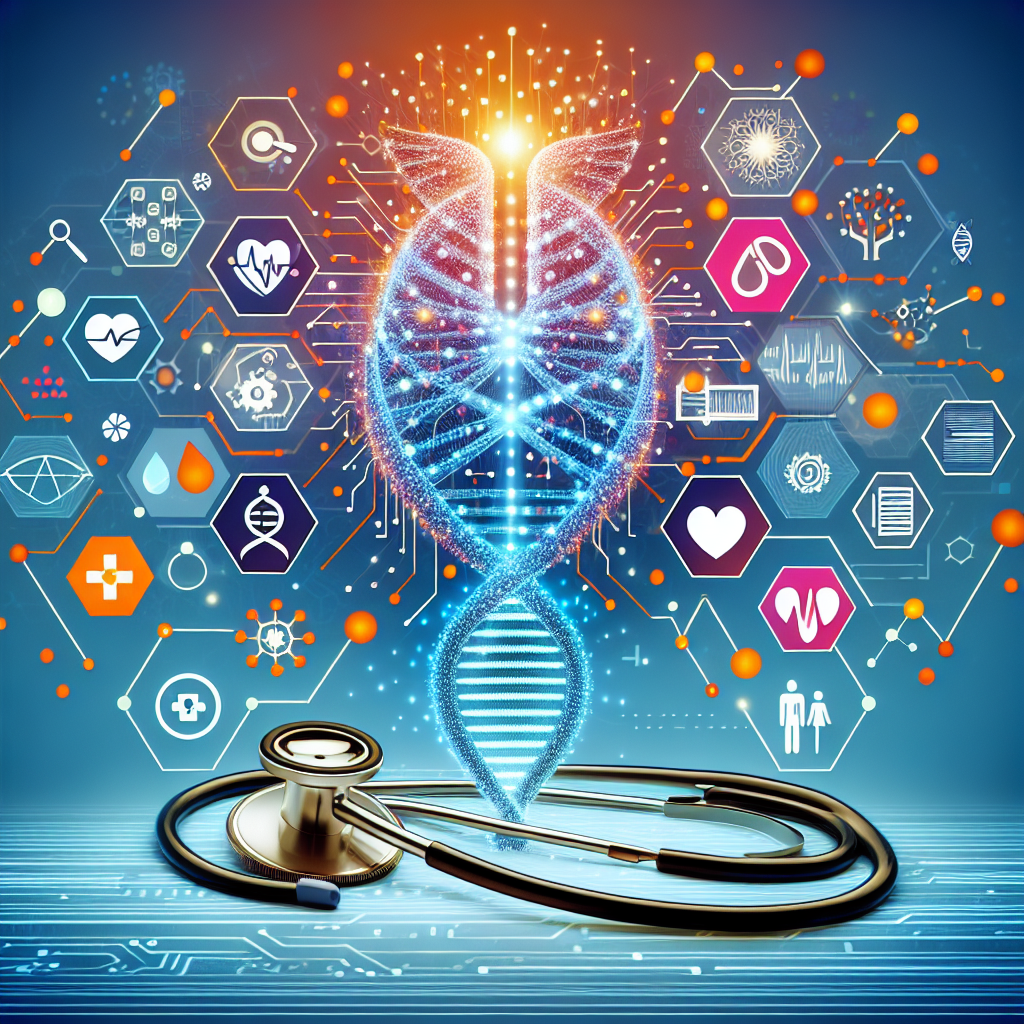Artificial Intelligence (AI) has been transforming various industries, and healthcare is no exception. In recent years, AI has been playing an increasingly important role in healthcare, from improving diagnostics to assisting in personalized treatment plans. One of the key areas where AI has been particularly beneficial is in addressing health literacy.
Health literacy refers to the ability of individuals to access, understand, and use information to make informed decisions about their health. Studies have shown that low health literacy is a significant barrier to accessing healthcare services and can lead to poor health outcomes. AI technology has the potential to bridge this gap by providing personalized and easily understandable health information to individuals.
One way AI is addressing health literacy is through chatbots and virtual assistants. These AI-powered tools can provide individuals with information about their health conditions, medications, and treatment options in a simple and easy-to-understand manner. Chatbots can answer common health-related questions, provide reminders for medication intake, and even offer tips for maintaining a healthy lifestyle. By using natural language processing and machine learning algorithms, these chatbots can understand and respond to user queries in real-time, making it easier for individuals to access relevant health information.
Another way AI is improving health literacy is through personalized recommendations. AI algorithms can analyze vast amounts of data, such as electronic health records, genomic information, and lifestyle data, to identify patterns and make personalized recommendations for individuals. For example, AI can recommend specific treatment options based on a patient’s genetic makeup, medical history, and lifestyle factors. This personalized approach to healthcare can help individuals make more informed decisions about their health and treatment options.
In addition, AI is also being used to improve patient education and engagement. Interactive health apps and platforms powered by AI can provide individuals with educational materials, videos, and quizzes to help them learn more about their health conditions and treatment plans. These apps can also track individuals’ progress, provide feedback, and offer support to help them stay motivated and engaged in their healthcare journey.
Furthermore, AI is revolutionizing medical imaging and diagnostics. AI algorithms can analyze medical images, such as X-rays, MRIs, and CT scans, to detect abnormalities and assist healthcare providers in making accurate diagnoses. By automating the process of analyzing medical images, AI can help reduce the workload of healthcare providers and improve the speed and accuracy of diagnoses. This can ultimately lead to better health outcomes for patients.
Despite the numerous benefits of AI in healthcare, there are also challenges and concerns that need to be addressed. One of the main concerns is the potential for bias in AI algorithms. If AI algorithms are trained on biased data, they can perpetuate and even amplify existing biases in healthcare, such as racial disparities in treatment. It is crucial for developers and healthcare providers to ensure that AI algorithms are trained on diverse and unbiased data to avoid perpetuating biases in healthcare.
Another challenge is the issue of data privacy and security. AI algorithms rely on vast amounts of data, including personal health information, to make accurate predictions and recommendations. It is essential for healthcare providers to implement robust data security measures to protect individuals’ privacy and comply with regulations, such as the Health Insurance Portability and Accountability Act (HIPAA).
In conclusion, AI is revolutionizing healthcare and addressing health literacy by providing personalized, easily understandable health information to individuals. From chatbots and virtual assistants to personalized recommendations and medical imaging, AI is transforming the way healthcare is delivered and improving health outcomes for patients. However, it is essential for developers and healthcare providers to address challenges such as bias and data privacy to ensure the ethical and responsible use of AI in healthcare.
FAQs:
Q: How is AI being used in healthcare?
A: AI is being used in healthcare in various ways, such as improving diagnostics, personalized treatment plans, patient engagement, and medical imaging. AI-powered tools like chatbots and virtual assistants provide individuals with personalized health information and support, while AI algorithms analyze vast amounts of data to make accurate predictions and recommendations for healthcare providers.
Q: What are the benefits of AI in healthcare?
A: The benefits of AI in healthcare include improved diagnostics, personalized treatment plans, patient engagement, and medical imaging. AI can help healthcare providers make more accurate diagnoses, recommend personalized treatment options, and engage patients in their healthcare journey. AI also has the potential to improve the speed and accuracy of medical imaging and reduce the workload of healthcare providers.
Q: What are the challenges of AI in healthcare?
A: The challenges of AI in healthcare include bias in algorithms, data privacy and security concerns, and ethical considerations. If AI algorithms are trained on biased data, they can perpetuate existing biases in healthcare. Data privacy and security measures are essential to protect individuals’ personal health information. It is crucial for developers and healthcare providers to address these challenges to ensure the ethical and responsible use of AI in healthcare.

